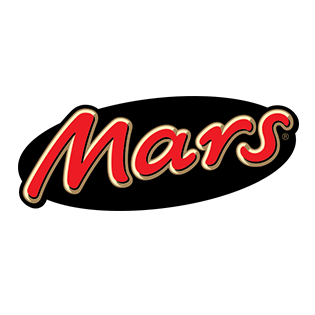Mars, the family-owned candy giant, is set to acquire Cheez-It maker Kellanova in a landmark $36 billion deal, making it the largest transaction of 2024 so far. This acquisition will unite popular brands like M&M’s and Snickers with Pringles and Pop-Tarts.
According to Reuters, Mars will pay $83.50 per share for Kellanova, reflecting a 33% premium over Kellanova’s closing price on August 2, prior to reports that Mars was exploring the purchase. The deal reflects Mars’ confidence in the continued popularity of branded snacks, even as packaged food companies struggle with slowing growth due to years of price hikes amid soaring inflation.
Mars CEO Poul Weihrauch stated in a Reuters interview that the combined company aims to maintain steady pricing and absorb additional costs without passing them on to consumers. He noted that Mars is now a “bigger and stronger company” capable of addressing challenges in an inflationary market.
Food prices in the U.S. surged roughly 25% from 2019 to 2023, according to the U.S. Department of Agriculture, significantly outpacing increases in other sectors such as housing and healthcare. However, inflation has begun to moderate, according to the latest U.S. consumer price index data.
Both U.S. and European consumers, key markets for Mars and Kellanova, are increasingly seeking cheaper alternatives, including private-label products. Kellanova has experienced a decline in its cereal market share in Europe due to this shift, according to CEO Steve Cahillane, who highlighted the company’s popular European cereals like Smacks, Frosties, and Coco Pops.
The U.S. packaged food industry is experiencing robust deal-making as companies seek to scale up and combat the effects of inflation, which has led to consumers cutting back or switching to less expensive private-label brands. Barclays analysts noted that the current environment is conducive to acquisitions, potentially prompting major food companies to shift their focus towards growth through mergers and acquisitions.
Investors are also concerned about declining sales due to the increased use of weight-loss drugs like Ozempic and Wegovy, which reduce appetite. In response, Weihrauch said that half of Mars’ portfolio would consist of “wholesome” snacks, such as Special K, Kind bars, and Nutri-grain, although Mars has no plans to develop products specifically for users of weight-loss drugs, unlike its competitor Nestle (NESN.S).
Mars plans to strengthen its snacking division, invest locally, and introduce healthier options as part of the deal, which it describes as “attractive and durable.” Mars currently holds a 4.54% share of the U.S. snacking market, while Kellanova has about 3.9%, both trailing behind market leader PepsiCo (PEP.O).
Kellanova, which also sells noodles in Africa, has faced challenges due to the continent’s economic difficulties. However, Cahillane sees an opportunity for Mars to leverage Kellanova’s distribution network in Africa to expand its candy business, while also noting the potential for Pringles in China, where Mars already has a strong presence.
This acquisition, Mars’ largest to date, surpasses its $23 billion purchase of Wrigley in 2008 and ranks among the biggest in the packaged food industry. Legal experts believe the deal is unlikely to face significant antitrust hurdles due to the limited overlap between the two companies’ offerings.
Following the transaction’s expected completion in the first half of 2025, Kellanova will be integrated into Mars Snacking, with Global President Andrew Clarke at the helm. The combined company will be based in Chicago, although Cahillane, a seasoned industry veteran with previous roles at Coca-Cola (KO.N), plans to depart once the deal is finalized.
In a regulatory filing, Kellanova indicated that the closing date could be extended by up to 12 months if the necessary regulatory approvals are not secured by August 2025.
Kellanova’s shares rose approximately 8% to $80.25 in early trading. Excluding debt, the deal values Kellanova at $28.58 billion, based on its outstanding share count, according to Reuters calculations.
Kellanova, which separated from WK Kellogg (KLG.N) last October, focuses on salty snacks and sells cereal outside of North America, while WK Kellogg retained the North American cereal business. Since the split, Kellanova’s shares have traded at a discount compared to peers like Hershey (HSY.N) and Mondelez International (MDLZ.O), making it an attractive acquisition target.
Investment firm TOMS Capital Investment Management, which acquired a significant stake in Kellanova earlier this year and engaged with the company to improve shareholder returns, is reportedly pleased with the deal price, though the firm declined to comment.
The deal includes a termination fee of $1.25 billion payable by Mars if regulatory approvals are not obtained, while Kellanova would owe Mars $800 million if its board changes its recommendation.
Mars plans to finance the acquisition through a combination of cash and a $29 billion debt financing commitment from JPMorgan Chase and Citi. Citi and the law firm Skadden, Arps, Slate, Meagher & Flom advised Mars, while Kellanova was represented by Goldman Sachs, Kirkland & Ellis, and investment bank Lazard, which advised its board of directors.

